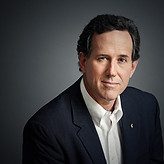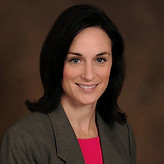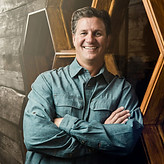



Neoretroism convenes many of America’s leading thinkers and practitioners in architecture, design, planning, engineering, and development to create a more authentic blueprint for change.

NeoRetroism works to empower ordinary people who want to create more great places.
Coming Soon
About NeoRetroism
Old ideas applied to a new paradigm.
NeoRetroism is a philosophy of real estate development born out of the study of historic villages and the way in which they evolved. For thousands of years people have come together in communities, and NeoRetroism is the closest that modern real estate has come to creating an organically evolved village.
NeoRetroism advocates for an integrated approach to uses and an emphasis on small entity ownership. A village exists to meet the needs of the people, so when we develop more responsive spaces there is less risk of vacancy, more personality, and more critical mass.
Supetar is a city on the northern side of the Dalmatian island of Brač, in the Split-Dalmatia County, in Croatia. It became the island's official center in 1827. It is the place where Jeffory D. Blackard acquired the Villa Adriatica resort as well as other assets of the local village. During his stay there over the next two years, he had an epiphany, which led to the birth of NeoRetroism.


Designed Based on Evolution
NeoRetroism Projects are designed for long-term adaptive reuse and are built using materials contextual to the environment.


Inclusive
NeoRetroism Projects serve various income levels and generations and are designed to foster social engagement and the transfer of wisom.


Hyper-Local and Responsive
NeoRetroism Projects are designed with the villagers' needs in mind and mix uses both vertically and horizontally. They allow for various modes of transportation and encourage walkability.

About the Founder
NeoRetroism is the recreation of old world evolutionary characteristics in a new world development environment. It is the innovation of Jeffory D. Blackard, an award-winning, internationally-renowned real estate developer. Mr. Blackard is also a visionary, philanthropist and CEO of Blackard Companies
"I am in the business of changing the way we think about developing property in the United States and throughout the world, to show developers, municipalities and financial institutions, that it is possible to create greater value by building villages."
The People
The people who have helped bring NeoRetroism to the fore come from a broad spectrum of the political, financial, professional, educational and municipal sectors. Those who have been advocates of the philosophy, have helped to bring a greater awareness of the need to promote the ideals of NeoRetroism into the 21st century.

Karen Harris
Managing Director, Macro Trends, Bain & Company

Austin Kimson
Chief Economist, Bain & Company

Brian Adams, ASLA
Urban Planner and Landscape Architect, Kimley-Horn

Rick Santorum
Former US Senator, Congressman, Presidential Candidate, Political Contributor, CNN

Bryan Trubey, FAIA
Senior Principal, Overland Partners Architecture & Urban Design

Paul Wasserman
Managing Director, Head of Portfolio Management, KKR

Scott Polikov, FAICP
President, Gateway Planning

Dr. Siniša Grgić
Croatian Ambassador to Sweden and Latvia

Joseph Pobiner, FAICP, CNU-A
Sr. Master Planner, Urban Designer, Gensler

Ted Stone, III
Principal, Blackstone Communities

Leigh Gallagher
Senior Managing Director, Teneo; Author and former Director, External Affairs, Google

Jane Ahrens
Design Manager at Parsons Brinckerhoff

Christian Glauser Benz
Head of Development, The Americas, Mandarin Oriental Hotel Group

Edward John
Recording Artist, TV Presenter

Nathan Sheets
Chief Steward at Nature Nate's Honey, Co-Creator of I Am Second

Kristi Avalos
President & CEO at Accesology

Darren Meyer, MD
Doctor of Psychiatry

Kevin Dingman
Principal, 7D4 Architecture

Drexell Owusu
Managing Director, Civitas Capital Group
